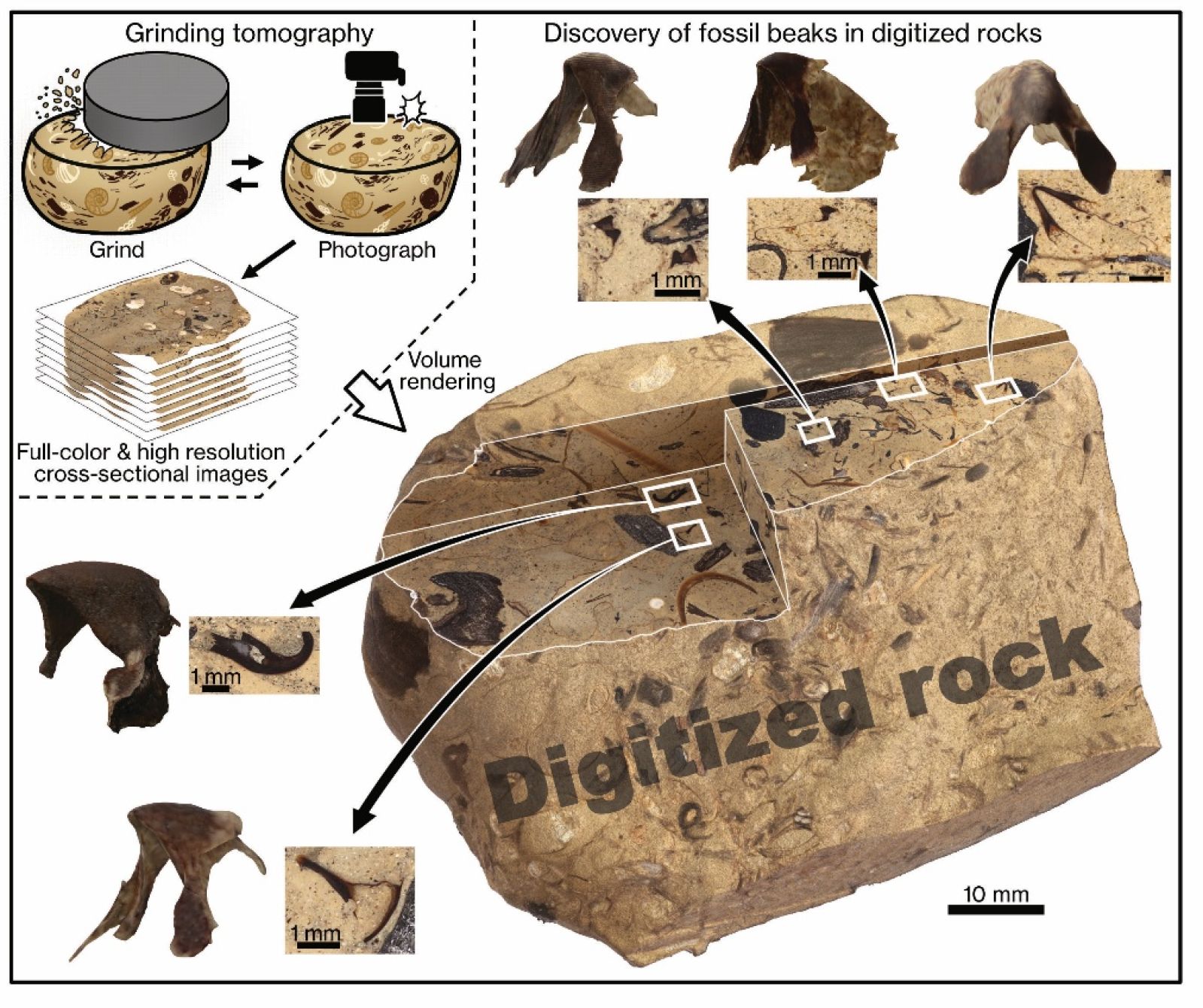Follow us on Google News (click on ☆)
Until now, scientists believed squids only thrived after the extinction of the dinosaurs. A Japanese study published in Science overturns this idea by uncovering an exceptional diversity of these cephalopods much earlier. Thanks to a novel 3D analysis method, hundreds of fossils have been detected.

A major breakthrough in fossil analysis
Researchers used grinding tomography, a destructive but ultra-precise technique. It allows detailed reconstruction of a rock's content by grinding it layer by layer. This approach revealed 1,000 cephalopod beaks, 263 of which belonged to squids.
Among these specimens, 40 species were previously unknown. Their beaks, measuring less than 0.8 inches (20 mm), explain why they had gone unnoticed. Their fineness, sometimes less than 0.0004 inches (10 micrometers), made them undetectable with traditional methods.
Squids, lacking shells, rarely fossilize. Their durable beaks thus become key clues for tracing their evolution.
An unexpected ecological dominance
Squids outnumbered and outsized fish and ammonites, long considered the kings of Mesozoic seas. Some reached dimensions comparable to contemporary fish.
The two modern squid groups already existed: Myopsida (coastal) and Oegopsida (pelagic). Their explosive diversification thus dates back to the Cretaceous, long before the dinosaur extinction.
These results suggest a far greater biomass than previously assumed. Squids were likely the dominant predators, foreshadowing the rise of today's fast and intelligent swimmers.